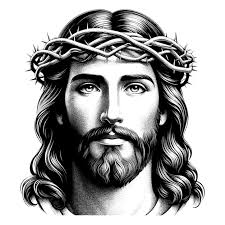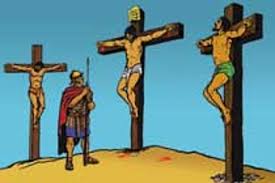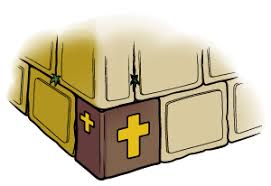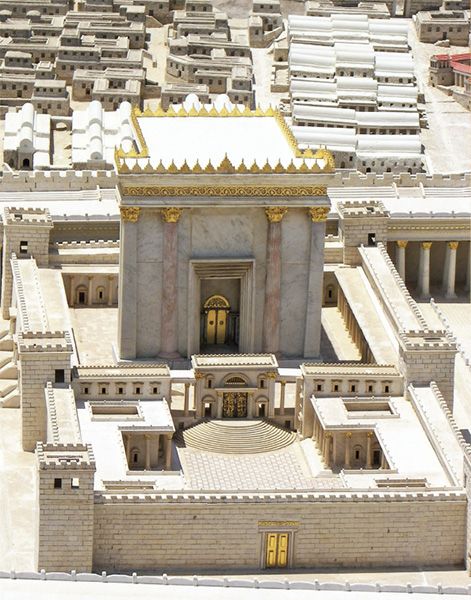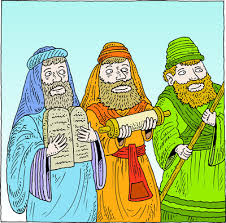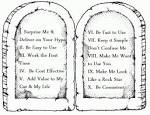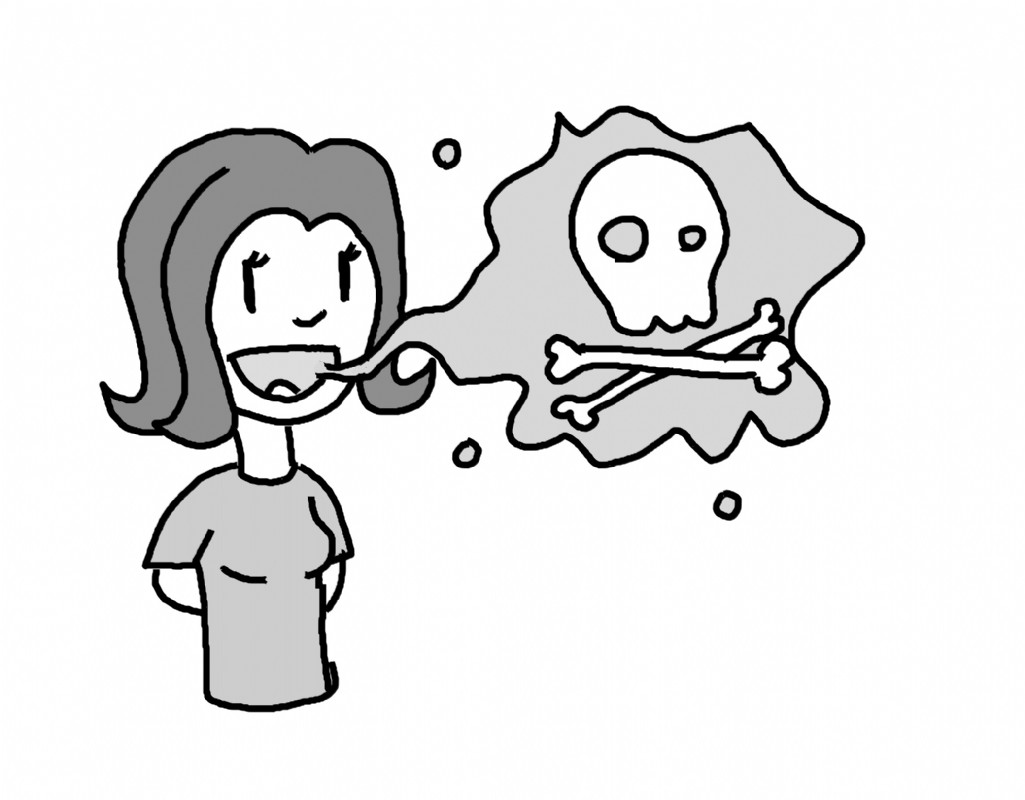I Peter 3:1-2 – Likewise, wives, be subject to your own husbands, so that even if some do not obey the word, they may be won without a word by the conduct of their wives, when they see your respectful and pure conduct.
So far in his epistle Peter has been dealing with the conduct of his Christian readers, particularly in the area of subjection/submission to authority. Christians are to honor and submit to the authority of government, provided it does not contradict scripture.
Servants/employees are to show due honor and respect to their masters/bosses. In doing so, the Christian glorifies God and opens the door for salvation to the lost.
 Now Peter turns to the relationship between husbands and wives. He specifically deals with the difficult position that a woman was placed in when she became a Christian, but her husband was still a pagan.
Now Peter turns to the relationship between husbands and wives. He specifically deals with the difficult position that a woman was placed in when she became a Christian, but her husband was still a pagan.
Before we go any further, it is vital that we understand the culture of the times in which this passage (and others by Paul) was penned, especially since that culture was RADICALLY different from our Western culture.
At that time, women in Eastern cultures (sometimes called Orientals), were considered pure and moral only if they 'stayed home'. They were never educated. They did not own property. They did not work outside the home, much less own a business. They never held positions of authority or power. They were considered inferior to men, and were little better than household slaves.
In contrast, women who were courtesans (upscale prostitutes) were frequently educated in not only book knowledge (reading, writing) but in philosophy, proper social graces, business and even statesmanship/politics.
So, at that time a woman with any kind of education got a bad reputation to go along with it. If a 'respectable' woman stood up in a public meeting and spoke, her reputation would have been instantly tarnished. In that culture, she would be considered common and corrupt and this would bring shame upon her husband and herself.
For example, women who wanted to keep their reputation of virtue had to keep silent in the church. A woman who spoke up in that setting was perceived by others to be unwholesome or even wicked. Her actions cast doubt on her character.
This helps us to understand why Paul says it is shameful for women to speak in the church (1 Corinthians 14:34-35). He said this because it was a fact of the culture at that time.
Despite what some religious sects would have you believe, Paul's statement in that passage is not a blanket prohibition of women in ministry! It is an example of restraining your own freedom for the sake of the gospel.
 Rather than ruin their reputation in the community, and thus cast aspersions on the gospel message, Paul instructed them to keep quiet in the church so they had a good testimony that might eventually win others to Christ.
Rather than ruin their reputation in the community, and thus cast aspersions on the gospel message, Paul instructed them to keep quiet in the church so they had a good testimony that might eventually win others to Christ.
Now we can begin to see why many women of that era (as noted in verse three of our text) spent an inordinate amount of time and effort on their outward appearance – because society essentially made it impossible for a virtuous woman to build her inward beauty with wisdom, knowledge and success. Fleeting, outward beauty was all she had left.
But interestingly, the apostles Peter and Paul encourage women to set their sights higher. They instructed the women of that age to cultivate and adorn their inward souls. Clearly, they did not believe that women should be relegated to the position of household slaves. In fact, under the Old Testament Law women were honored, respected and trusted. They held positions of influence and leadership. As we would expect, Christianity retained and even built upon these rights.
Indeed, Christianity reflects God's true plan for women, which is for them to be a respected partner of men in life and in the gospel.
Perhaps Matthew Henry said it best: "In creating woman, God did not take her out of the head of man to be over him, nor from his feet to be under him, but out of his side to be equal with him, from under his arm to be sheltered and protected by him, and from near his heart to walk in sympathy and helpfulness by his side."
It is God's design for a man and a woman to be joined together as a single entity – one in heart, purpose, aim and desire. They are two halves of a whole.
The Preachers Homiletic Commentary puts it this way: "...the wife in the happy home is equal in position and influence to that of the husband, but not the same. Woman is not merely a copy of man – a faded, second impression from the same plate – but another creation, enlarging and enriching life. The husband and wife are the two halves of one whole, and the whole is designed by God to be greater and better than the sum of the parts."
With this background in mind, let's examine today's text.
I Peter 3:3-4 – Do not let your adorning be external – the braiding of hair and the putting on of gold jewelry, or the clothing you wear, but let your adorning be the hidden person of the heart with the imperishable beauty of a gentle and quiet spirit, which in God's sight is very precious.
Some sects of Christianity have taken this passage (and others by the apostle Paul) out of context and used them to enforce some strange rules. They forbid women to wear jewelry, makeup or pants. They forbid them to cut or style their hair, and even force them to wear a hat/head covering while praying. Those who interpret the scriptures in this way are completely missing the point Peter is making!
So what is Peter saying in this passage? Well, let's look at the context. Peter has just examined the difficulties inherent in the relationship of a Christian citizen and a pagan government, as well as a Christian employee and a pagan boss. Peter has advised the Christians in these circumstances how they should act in order to please God and be a witness to the unbelievers around them.
Now Peter examines the difficulties inherent in a marriage relationship when the wife has become a Christian, but the husband has not. He will advise women in this situation how they should act in order to please God and be a witness to their unbelieving husband. This is the true message of the passage!
This passage is not a lesson on the general relationships between wives and husbands. Relationships and circumstances change from age to age, culture to culture and nation to nation.
Let me just confirm it one more time. The true meaning of this passage is how a Christian wife should live her life in order to please God and be a witness to her unbelieving husband.
Again, understanding the culture sheds a lot of light on the difficulty facing the Christian women of that era. On the one hand, the law and culture considered them barely above the level of slaves. On the other hand, Christianity considers them full partners in life with their husbands.
So the apostle is giving the women of that era sound advice on how to navigate through the difficulties of this relationship, just as he gave advice to Christian citizens and Christian employees. You have to love the way Peter gets right down to the practicalities of everyday life!
And here is his godly advice: There is nothing wrong with outward beauty, but true beauty is an inward beauty of the heart.
 External beauty/adornment does not last. It will fade, decay or go out of style. (You know this is true; just look back at some of your old photographs and see what was considered 'stylish' 20 years ago!)
External beauty/adornment does not last. It will fade, decay or go out of style. (You know this is true; just look back at some of your old photographs and see what was considered 'stylish' 20 years ago!)
By contrast, internal adornment/beauty endures forever, because your soul is eternal. Beauty of the heart and mind never goes out of style. Peter advocates for a gentle and quiet spirit. This kind of spirit does not flash into anger, or answer harshly. It does not gossip or stir up trouble. Rather, it is calm and tranquil in all circumstances - even unfair ones. It possesses (and spreads) the peace of God to everyone it interacts with. These adornments are very precious in God's sight.
When a person (wife or husband) exhibits these traits it is a testimony to the unbelieving partner; they bear witness to the character of God by example rather than by words. This is a very powerful testimony indeed! By this testimony the Christian will win the unbeliever to Christ. Peter points to Sarah, wife of the patriarch Abraham as an example of a woman who cultivated a gentle and quiet spirit.
I Peter 3:5-6 – For this is how the holy women who hoped in God used to adorn themselves, by submitting to the own husbands, as Sarah obeyed Abraham, calling him lord. And you are her children, if you do good and do not fear anything that is frightening.
Can we take a few moments now and consider our own culture? Our situation is the exact opposite of the women in Peter's day.
In the United States of America in 2021, law and culture automatically assume that women are equal to men. This is a blessing that more closely matches the will of God, and I do not think it is a coincidence that we find this in a nation that was founded upon God's word.
I'd like to make two quick points here.
- Ladies, do not allow your freedom to be a stumbling block to others. Honor your husband as the head of your home. Treat your neighbors as yourself. If you want to be a leader, be the servant of all. Pride and arrogance will lead to your downfall, so watch yourself. Be thankful for your freedom and steward it wisely for God's glory.
- Second, all Christians who step out in faith and answer the call God has placed upon their lives encounter resistance. However, women often encounter an added dimension of resistance from the body of Christ itself. But fear not! Walk in the boldness and confidence of Holy Spirit and complete the task God has called you to do! Be a good steward of the gifts God has given you. Don't waste time worrying about what others are saying; let God deal with them!
Now, while Peter addresses married women in his text, there are lessons here for single women (and men) as well. Let me begin by asking you a question: How important is your choice of a spouse?
In my opinion, it is the second most important decision you can make, after your decision to accept Christ as Savior.
When you marry, you have legally and spiritually joined yourself to another person (Genesis 2:23-24, Ephesians 5:31). God's will is for this person to be your partner for the rest of your earthly life.
What kind of a partner do you want? One who works diligently, exhibits faithfulness, shows patience, and loves God? Clearly, none of us is perfect. But in choosing a spouse who is a Christian, you have a much better chance of finding a partner who is faithful, loving, kind, etc because these are the attributes that God instills within his children. If both of you are believers, your marriage is based on Christ and you can turn to him for guidance in the difficulties of life.
Or would you rather have a partner that does not provide for you, cheats on you, is abusive and has no regard for the things of God? In choosing a spouse who is not a Christian, you have accepted Satan as your father-in-law, and his children are just like him!
This does not mean that you have an absolute guarantee of a happy and trouble free marriage if you are both Christians. To be sure, there will be bumps along the road of life, and some Christians continue to struggle with wicked habits. Even in the case where both partners are Christians, you will still have to work to keep your marriage satisfying and intact.
It also does not mean that if you are a believer who is married to a nonbeliever that there is no hope for your marriage! There are many people who come to salvation in Christ after they are married; God does not expect you to separate from your spouse for that reason. Rather, God wants to draw your unbelieving spouse to him, and he will use you to do it!
As Peter indicates in this passage, when the believing partner honors their spouse and demonstrates grace, love, forgiveness, patience, joy and peace in daily life, they provide an example of Christianity that no amount of words could convey. A living example is a powerful testimony to the unbeliever and usually reaps better results than nagging or preaching!
I Peter 3:7 – Likewise, husbands, live with your wives in an understanding way, showing honor to the woman as the weaker vessel, since they are heirs with you of the grace of life, so that your prayers may not be hindered.
There can be no doubt that God's will is for the husband to be the head of the home (Ephesians 5:23). But again we notice that contrary to the culture of that day, women are to be treated with honor and respect. In fact, Christianity is the only religion whose practical application results in such honor and respect of women.
Further, the apostle goes on to say that women are equal heirs in the salvation and benefits of God. Think about that for a moment.
Women are not 'settling' for a bad deal when they submit to the husband as the head of the home. They are exercising sound judgment as they partner with their husbands in life and in the gospel. The authority of the husband does not interfere with the woman being an equal heir of eternal spiritual things. On the contrary, fulfilling the role God has given you on earth results in eternal reward. This is true for men and women alike.
Therefore, in the most important aspect of life (our relationship with God), women are in every way equal to men. All humans, male and female alike, are entitled to claim the promises of God. All may expect forgiveness of sin, fullness/gifts of Holy Spirit, and a home in heaven. All may praise and worship; all may travail in prayer and seek a move of the hand of God in their situations.
The Christian home should be a bastion of peace and safety, with the husband in authority, showing respect and honor to the wife as the two of them partner together to navigate the storms of life, raise the next generation of believers, and grow in grace. Don't you want to live in a home like that?
Peter also warns his readers about the spiritual dangers of strife/discord in their marriage. Strife will normally result in anger, unforgiveness or a breakdown in the relationship.
These injuries to our spirit will most often keep us from praying at all. Those who do try to engage in prayer, will find God turning them away:
Matthew 5:23-24 – So if you are offering your gift at the altar and there remember that your brother has something against you, leave your gift there before the altar and go. First be reconciled to your brother, and then come and offer your gift.
Look at what Jesus is saying here - you might find it shocking. He instructs us to leave the altar (the place of prayer) to go and mend our broken relationship. Only then should we return to prayer.
As Peter warns, in order to have prayers reach the throne room of God and have their full effectiveness, you need to be a peace with your spouse.
I Peter 3:8 – Finally, all of you, have unity of mind, sympathy, brotherly love, a tender heart, and a humble mind.
Peter now gives instructions for the wider Christian brotherhood, the church, by teaching us how to treat one another.
Unity of mind: Christians are to be in agreement not only in the doctrine of salvation, but in practical aims. If we unite with other sections of the body of Christ, we have a hope of reaching the world for Christ.
Satan knows this and he would like nothing better than to cause division among believers. Although different denominations disagree on certain doctrines, we should be able to unite and work with other organizations that believe in salvation through the blood of Jesus. Let our love for one another and our desire to serve Christ overcome our divisions.
Sympathy, brotherly love, a tender heart: The importance of Christian love cannot be over stated. Remember that Paul, in his address to the Corinthians, says that even if a believer speaks in heavenly languages, understands prophesy, has faith to move mountains, gives all he has to the poor and is a martyr for God, it is of no value to him without love! (See 1 Corinthians 13:1-3).
We are to rejoice with our fellow believers when they rejoice, and weep with them when they weep, having sympathy and compassion for all. When we go through some of the trials of life, we can lean upon our Christian family for support, comfort and practical help. When God has brought us through, we are then able to assist others in their time of need.
Humble mind: To be humble-minded means to make a conscious effort to be truly humble. Humbleness is the opposite of pride and arrogance. It is a state of mind that recognizes we have fallen short in God's eyes, yet He has forgiven us; we ought to do the same for others. This is appropriate for the Christian, because humbleness should underlie all of our relationships.
I Peter 3:9 – Do not repay evil for evil or reviling for reviling, but on the contrary, bless, for to this you were called, that you may obtain a blessing.
God has showered us with mind boggling blessings. He has paid for our forgiveness, healed our sicknesses/diseases, given us the indwelling Holy Spirit, granted us his authority on earth, allowed us into his throne room/presence, and blessed us with a comfortable earthly life. But wait - there's more! He has also guaranteed us everlasting life with him in heaven along with other eternal rewards that we have not even dreamed of!
I would not expect any disagreement when I say that we did nothing to deserve these blessings. The truth is that we have all sinned and come short of the glory of God (Romans 3:23).
Since God has blessed us when we deserved punishment, God expects us to do the same for others. Jesus taught this by word and example when he lived on earth.
Matthew 5:44 - But I [Jesus] say unto you, Love your enemies, bless them that curse you, do good to them that hate you, and pray for them which despitefully use you, and persecute you;
[Side Note - notice that we are to bless people, not justify sin. Sin is sin, and people need to see that so they can be convicted and forgiven as we are. So be careful not to justify their sin when you are blessing them.]
I'm sure that you can anticipate the objections that Peter's readers probably brought up back in that day. They might have said something like this:
'Listen, Peter, you don't know these people like we do. If we return good for evil, that is not going to change them. It will make things harder on us, because if they find out they can take advantage of us, they will never stop! They will walk all over us and bully us! We will eventually perish from the earth, but they will still be around! Our lives will be miserable!'
Granted, in the natural realm it makes no sense to show love to your enemies, bless them that curse you, do good to those who clearly hate you, or pray for those who persecute you. Everything within us wants to do the exact opposite!
But the prophet Isaiah tells us that God's ways are higher than our ways (Isaiah 55). God's kingdom often works the exact opposite from the way our world works.
In man's economy, you have less after you give things away, so you should hoard all you have for yourself. In God's economy, those who give can expect an abundance to return to them – "pressed down, shaken together and running over". The more you give, the more you get.
In man's kingdom, the lowest ranking people are expendable; they must die so the King can be protected and live. In God's kingdom, King Jesus died so that his subjects might be protected and live!
In man's government, leaders are those who assume authority and expect others to serve them. In God's government, the one who would be a leader must be the servant of all.
And again in this particular case, we see that God's kingdom works differently than the kingdom of man. In man's world, those who do good to their enemies will be destroyed or taken advantage of; their short lives will be filled with pain and turmoil.
But God's wisdom reveals that those who want to have a long, peaceable and prosperous life must turn away from evil, and repay evil with good.
Peter declares this truth from Psalms 34:12-16:
I Peter 3:10-12 – For "Whosoever desires to love life and see good days, let him keep his tongue from evil and his lips from speaking deceit; let him turn away from evil and do good; let him seek peace and pursue it. For the eyes of the Lord are on the righteous, and his ears are open to their prayers. But the face of the Lord is against those who do evil."
Christians who desire long and peaceful lives on earth must not engage in the sins of lying, reviling, speaking rebellion, flattery that covers wicked intentions, slander, gossip, cursing or any of the other sins we tend to commit with our tongues. Even if our enemies curse us, we must bless them in return.
A Christian should always remember that our words are very powerful; they contain the ability to give life or death and they should be used carefully (Proverbs 18:21).
 But according to the apostle Peter, you have to do more than just watch what you say. You have to turn away from evil and do good, walking in the ways of righteousness and living holy lives. This includes the mandate from Jesus in Matthew chapter 5, on how to treat our enemies.
But according to the apostle Peter, you have to do more than just watch what you say. You have to turn away from evil and do good, walking in the ways of righteousness and living holy lives. This includes the mandate from Jesus in Matthew chapter 5, on how to treat our enemies.
Those who do, obtain the blessing of a long life. And a long, healthy earthly life is indeed a blessing. It gives us the opportunity to gain more knowledge of God, and pass that knowledge down to our children and grandchildren. It gives us ample time to prepare for eternity; we labor on earth for the riches we will have in heaven. Long life affords us numerous opportunities to do good to others, and share the gospel of Christ with the lost.
So don't be fooled by the earthly wisdom of man. Guide your life by spiritual principles. And remember, God is watching over the righteous, and listening for our prayers.
Let me offer you some encouragement:
Perhaps you had someone in your life who was always sowing negative, derogatory comments and ideas into you. Perhaps they gave you the impression that you are worthless and you would never amount to anything, much like some of the women in Peter's day.
Regardless of what they may have told you, I want you to know the truth: You are of great importance and value to God!
The scripture tells us that God breathes the breath of life into every human being. It tells us that God knows the sum of your days, before you are even born. He knows the number of hairs on your head and every word that comes to your lips. He sings over you with joy! Although God created you with a purpose and plan, he does not love you for what you will do for him. He loves you simply because you are his child!
Let me offer you some relief:
You can find freedom/relief from all those negative seeds that have been sown into your life. The first step is to accept Jesus Christ as Lord and Savior. The second step is to begin to examine the scriptures to find out what God has to say about you. Remember, your value is not in what you do, but in who you are – his child!
Let me offer you some strength:
Ephesians 1:3 tells us that God has blessed us with all spiritual blessings in heavenly places in Christ. Hallelujah! Knowing who you are in Christ and what He has done for you should give you the strength to bless your enemies. That goes against the logic of this world, but I assure you, in God's economy you will reap a guaranteed reward!




